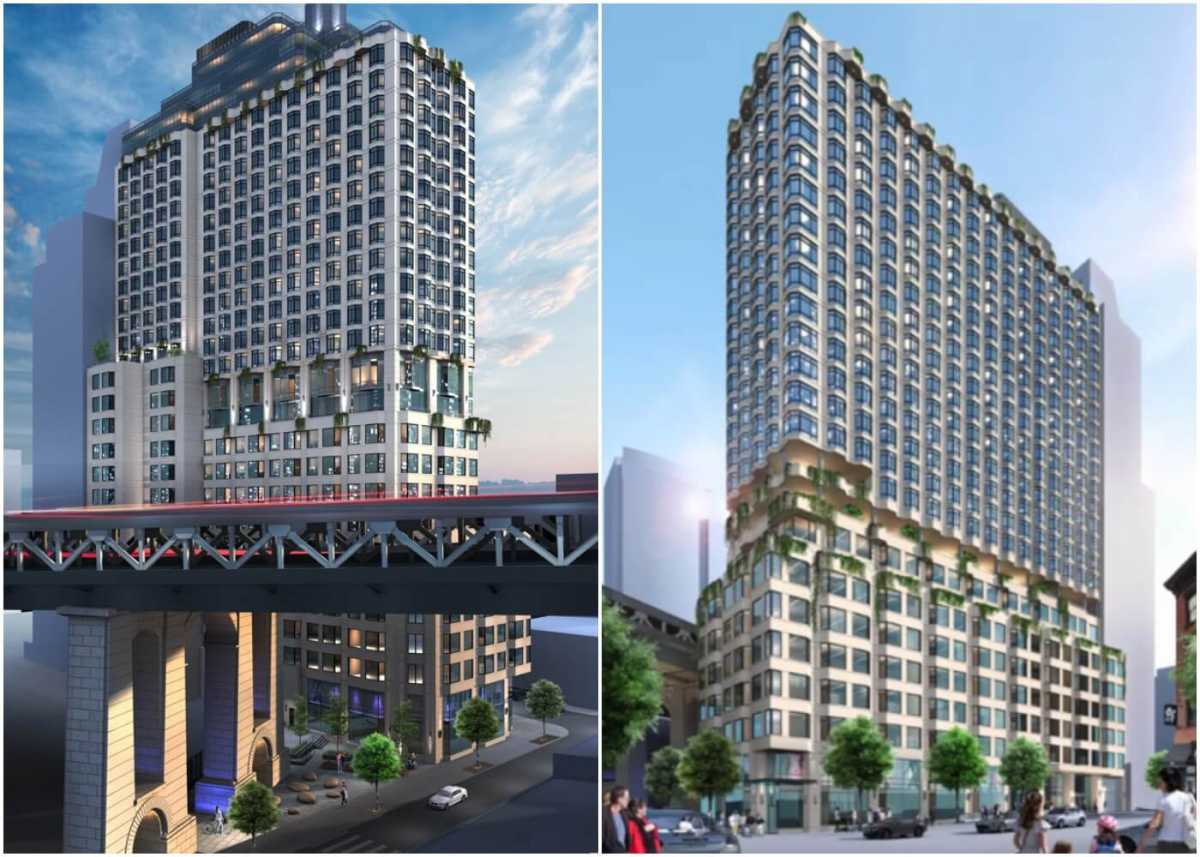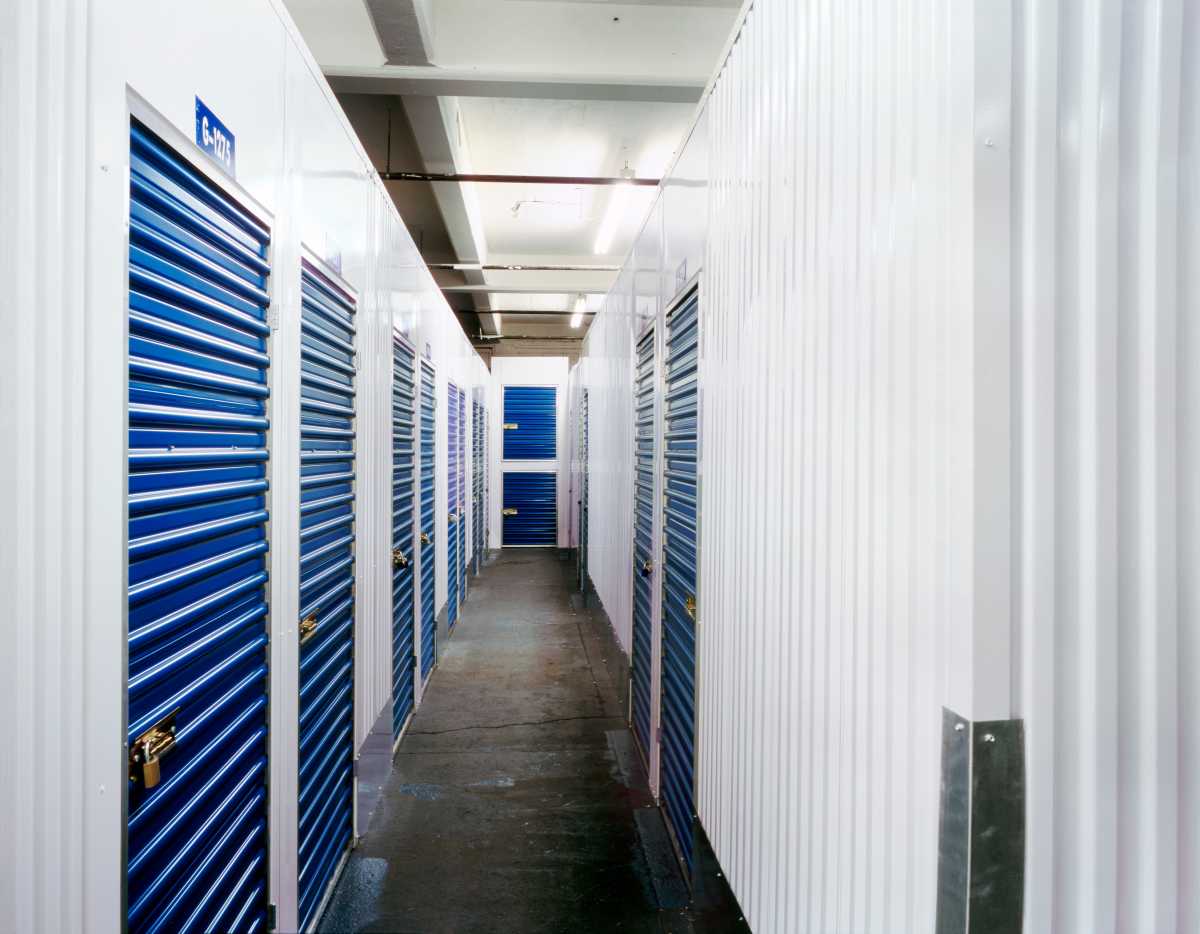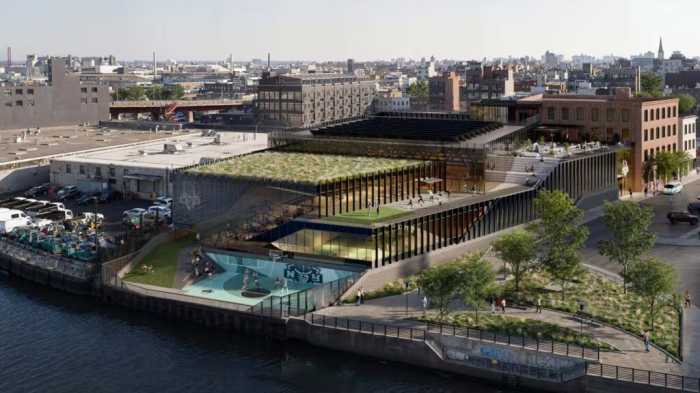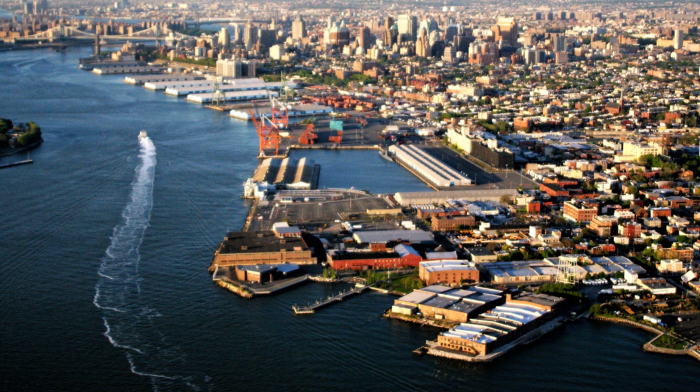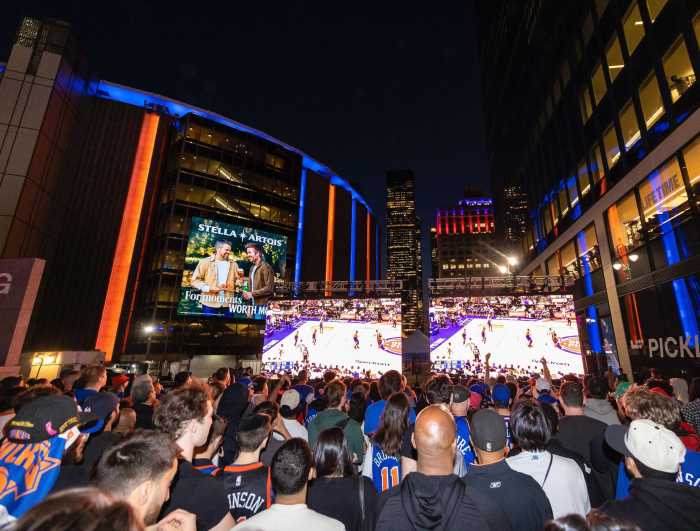A local development group is looking to buy up the city-owned development rights under the Manhattan Bridge to erect a 26-story tower that would house both luxury apartments and office space on Adams Street, which a city rep says would bring more than 400 jobs to the area.
“The transaction will produce job-generating commercial offices in Brooklyn, an outer-borough business district,” said Christina Rausch, a rep for the city’s Economic Development Corporation, which is overseeing the project. “As we look forward to recovery from the public health crisis, it’s really important to plan for jobs that are close to where people live.”
Williamsburg-based Rabsky Group already owns the lot at 69 Adams St., and recently told Community Board 2’s Land Use Committee they want to purchase the “development rights” from the adjacent city-owned lot at the corner of Adams and Front streets, which would allow them to build a wider building on their lot.
Without the transfer of development rights from the city’s neighboring property, the builders would simply erect a thinner tower at the same height — but only with apartments, and no office space.
If they get their way, the developers would be allowed to build an extra 98,000 square feet of space, which they would use to house seven stories of offices, in addition to 14 upper floors of apartments.
The building sits on a sloped street with its cellar floor boasting retail space, topped by two separate lobbies for workers and residents on the ground floor, and a 90-car residential parking garage on the second floor.
From the third to the ninth floor would be offices, followed by two floors of recreational open space for residents on the 10th and 11th floors, and the apartments above from floors 12 through 25.
The 225 luxe apartments would all be market rate, without any affordable units, and range from studios to two-bedrooms — but an attorney with the firm said they were unsure whether the units would be rentals or condos, due to uncertainties in the current economic climate.
“At this point, given the environment, I have no idea,” said Raymond Levin.
The developer won’t be offering any affordable units, Levin said, because they’re “not required to, and we’re not going to.”
If they successfully obtain the development rights, the proposed building would have a total area of 250,000 square feet — with 156,000 square foot of residential space, and 760 square feet of retail, according to the Rabsky Group representatives.
Under the proposed transfer, the Department of Transportation, which currently owns the lot, would retain a small amount of development rights in case they want to use part of the lot — but the EDC proposes selling the majority of the air rights, which aren’t usable because of the bridge overhead, the board’s district manager Rob Perris noted.
Any sale of development rights for commercial office use will have to be approved by the city’s lengthy land use review procedure at some point in the future, but that process has been currently suspended by a mayoral executive order since March because of the coronavirus pandemic.
Property records show that Rabsky Group purchased the 69 Adams St. lot from the Jehovah’s Witnesses business arm for $65 million in 2016, and they’ve maintained that they will build a purely-residential tower if they don’t get the expanded building regulations — essentially incentivizing the community with the prospect of new jobs in the area.
But not every virtual attendee of the June 17 community board meeting was swayed by the proposal, including one local who argued the promise of jobs was simply a vague, abstract promise.
“Job creation is sort of a nebulous justification and has a very long history of being used to justify some good and some bad policies,” said Dumbo resident Ivo Stranic. “As a community member, I request that we know more details [about] what the job creation will be. Real estate in itself does not create jobs, jobs are created elsewhere.”
Stranic added that the local F train station at York Street was a frequent bottleneck prior to the pandemic, and that it could not handle an influx of new residents.
“I really think that station can’t support any more [people] during rush hour,” he said. “All of these problems exist without any of the additional developments.”
Another resident of the neighborhood echoed his concerns, saying the proposal’s benefits aren’t really a bonus for the area at all.
“Right now, looking at Dumbo in general, I don’t think that office creation is a community benefit,” said Karen Johnson. “You’re not addressing any of the infrastructure needs as far as train stations, schools, anything else that benefits the community as a whole.”
While the Rabsky Group lawyers said they “understood” and “noted” the concerns, the EDC rep countered that the proposed transfer would commit the developers to hiring 35 percent locally, or through the city’s women and minority-owned business program for the project, while adding offices and retail.
“The city is planning for long-term job growth and making investments for the city’s future, so it’s more of a jobs and economic development plan,” said Rausch. “The idea is the developer would create retail space to help further activate the streetscape and if there’s no transfer of development rights the developer would really just build a fully-residential building at the same height and they would not be obligated to abide by any of the local hiring programs.”
The informational presentation was a teaser for the future ULURP application, but officials said it wasn’t clear when that would start, given the ongoing moratorium on that process.


